 Education
Education
 Free Speech
Free Speech
New Head of Brazilian Education Agency Supports Free Speech in Origins Debate
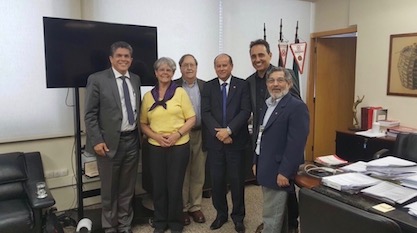
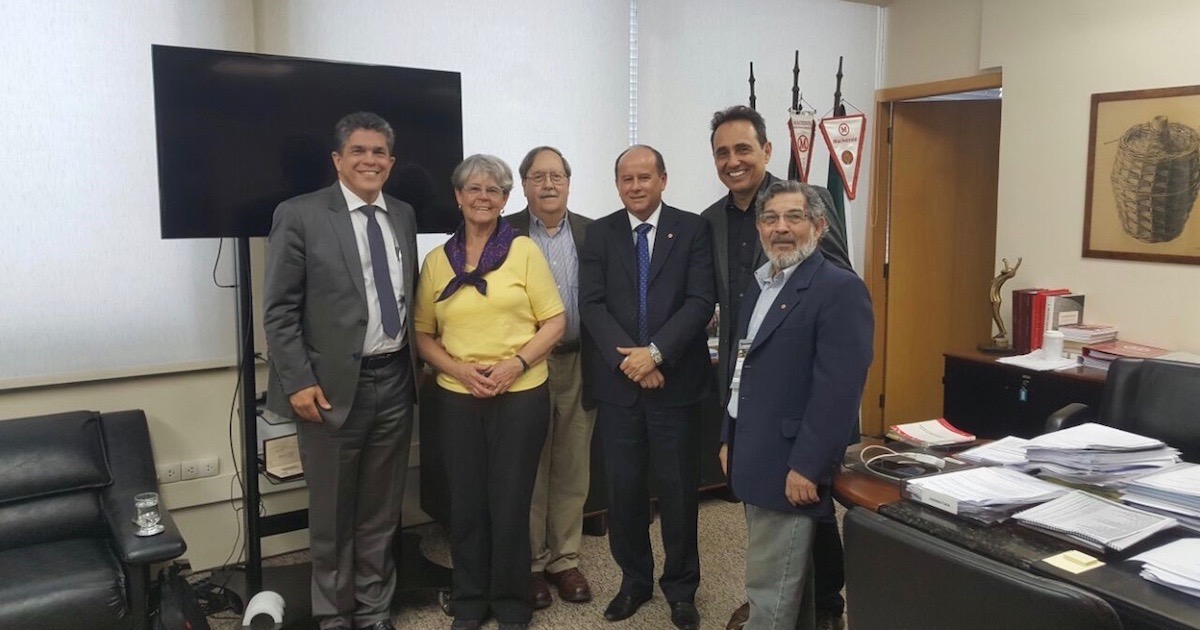
Brazil just tapped a distinguished scientist and university official to head one of the agencies overseeing the country’s system of higher education. His name is Benedito Guimarães Aguiar Neto, and he is a strong defender of free speech in science, including free speech in the growing scientific debate over design and purpose in nature.
A respected university scientist in the field of electrical engineering, Dr. Neto has more than 100 publications to his name. He also has an exceptional record as a leader in higher education in Brazil, the fifth most populous nation on Earth. Neto has been a leader in science education in his country, and he has served as President of the Council of Rectors of Brazilian Universities.
Just as important, Neto has championed diversity of thought and open discussion in science. As the rector of Mackenzie Presbyterian University in São Paulo, Neto helped establish the Discovery-Mackenzie Research Center, devoted to the study of scientific evidence for intelligent design as well as the exploration of the relationship between science and faith. This cooperative venture between Mackenzie University and Discovery Institute in the United States is led by the great Brazilian chemist Marcos Eberlin, a member of Brazil’s National Academy of Sciences
Neto will now head the Coordenação de Aperfeiçoamento de Pessoal de Nível Superior (CAPES), meaning roughly the Coordinating [Agency] for the Improvement of Higher Education Personnel. As a longtime Brazilian academic insider explained to me in an email, “CAPES is very significant since by grading universities and their courses, it tells how much in fellowships and grants each one will get. Academics see CAPES as the gatekeeper for scientific grants in Brazil.”
The news of Neto’s appointment has drawn international coverage and — predictably — misleading headlines.
“Creationism” Again
“The appointment of a creationism advocate to lead the agency that oversees Brazil’s graduate study programs has scientists here concerned — yet again — about the encroachment of religion on science and education policy,” the leading U.S. journal Science claimed last week.
But as the Brazilian Society for Intelligent Design responded in a statement, “Intelligent design is not religion and is not creationism, although, like every theory about our origins, it carries with it profound — and inevitable — theological and philosophical implications.” Nor does Dr. Neto seek an “encroachment of religion on science and education policy.” True to the spirit of ID, in his academic leadership, “Dr. Neto did not impose anything, but instituted a free and healthy debate in his university between evolution and intelligent design.”
Openness to Debate
In Brazil, the rector is the equivalent of a university president. In that role Neto hosted a delegation of scientists from Discovery Institute in 2017 for the founding of Discovery-Mackenzie, in partnership with Dr. Eberlin. (See the accompanying photos. At the top, Neto stands between Jonathan Wells and Marcos Eberlin.)
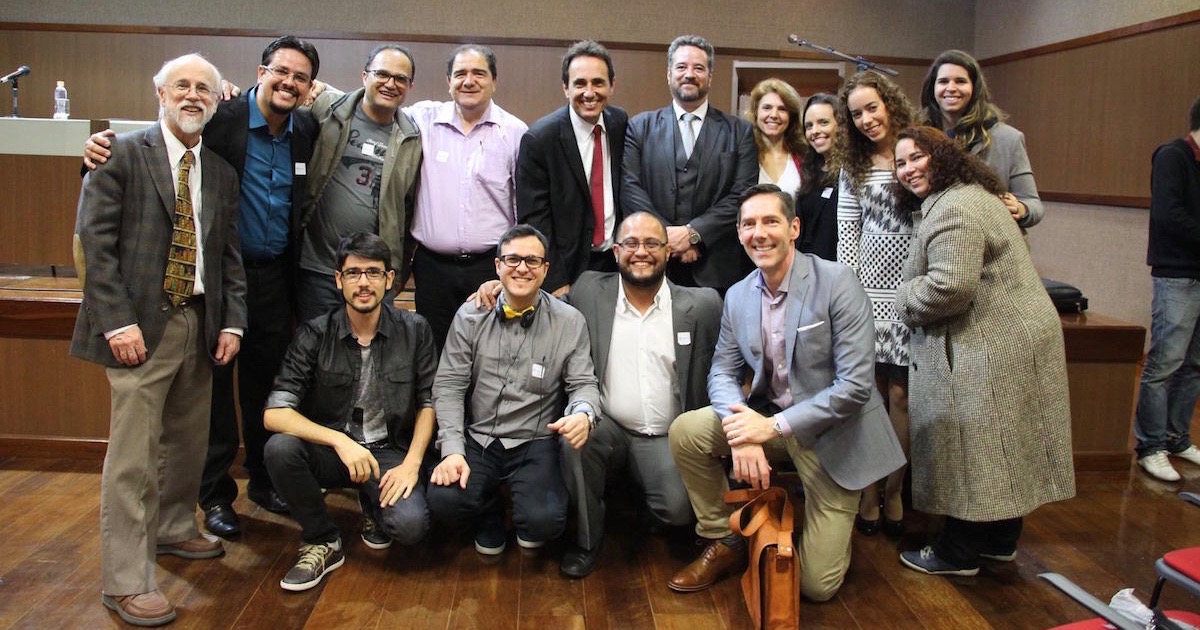
In an interview with a Brazilian newspaper, Gazeta do Povo, Neto commented on welcoming an ID perspective (translation via Google Translate):
I defend [the idea] that we can foster plurality of thought in the university, to develop the critical awareness of our students. Without freedom, creativity does not develop and problem-solving becomes more [difficult]. Why not open the discussion for the participation of those who think differently about the origin of life, who use scientific arguments in the context of intelligent design?
Neto calls for an attitude of openness on “the complex question of the origin of life, as a counterpoint to the prevailing theories.” Molecular biologist and ID advocate Douglas Axe was among the ID-friendly scientists who visited Brazil for the debut of Discovery-Mackenzie. In an interview over the weekend, Dr. Axe explained why he thinks evolution defenders shy from debate and free-wheeling discussion: “There’s really only one reason for the academic powers-that-be to avoid discussion of a subject of such obvious scientific import: They know an open debate won’t go their way.”

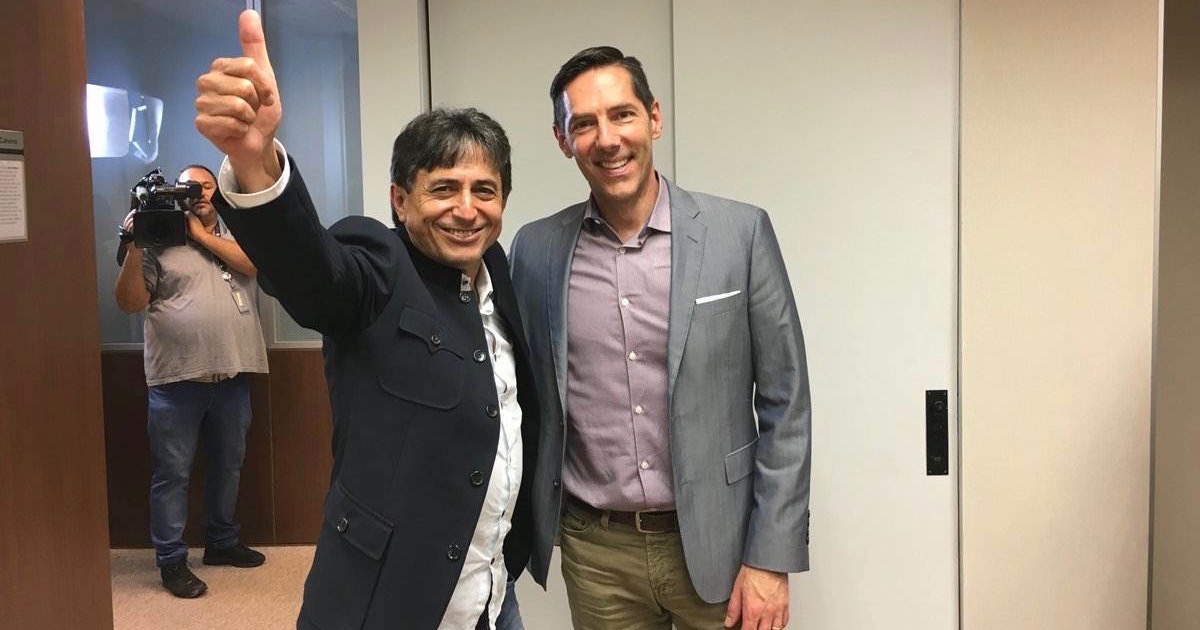
Brimming with Energy
As I’ve commented here before, the Brazilian ID movement is brimming with charisma and energy. When Eberlin goes on television to talk about intelligent design, his reach is enormous. See “On Brazilian TV, 3.5 Million Viewers Learn to Say ‘Intelligent Design’ in Portuguese.” But TV viewers are one thing. The harder nut to crack is scientists and other academic scholars.
There, too, ID in Brazil has met with wonderful success. Marcos Eberlin’s book Foresight: How the Chemistry of Life Reveals Planning and Purpose won accolades from three Nobel Prize-winners. And as of this month, complaints from Darwinists notwithstanding, Benedito Neto will be helping to decide how public and private universities use grant money from the country’s Federal Government.
This success is reflected across the globe as ID societies have launched in Austria, Scandinavia, Israel, Poland, Italy, and the United Kingdom.
The Strength of the Evidence
The most striking thing about the case for design is the way it has made progress in circles where you might least expect it to do so. The renowned Yale computer scientist and polymath David Gelernter made a splash when, in explaining his rejection of Darwinian theory, he cited three books by Discovery Institute authors as having guided his thought, especially Stephen Meyer’s New York Times bestseller Darwin’s Doubt.
Atheist philosopher Thomas Nagel at New York University, recognizing Meyer’s earlier book, Signature in the Cell, as a Times Literary Supplement Book of the Year, acknowledged Dr. Meyer for his “careful presentation of this fiendishly difficult problem.” Paleontologist Günter Bechly, a curator of a major natural history museum in Germany, fundamentally changed his outlook on Darwinian evolution after reading books by biochemist Michael Behe and other ID advocates. And so on.
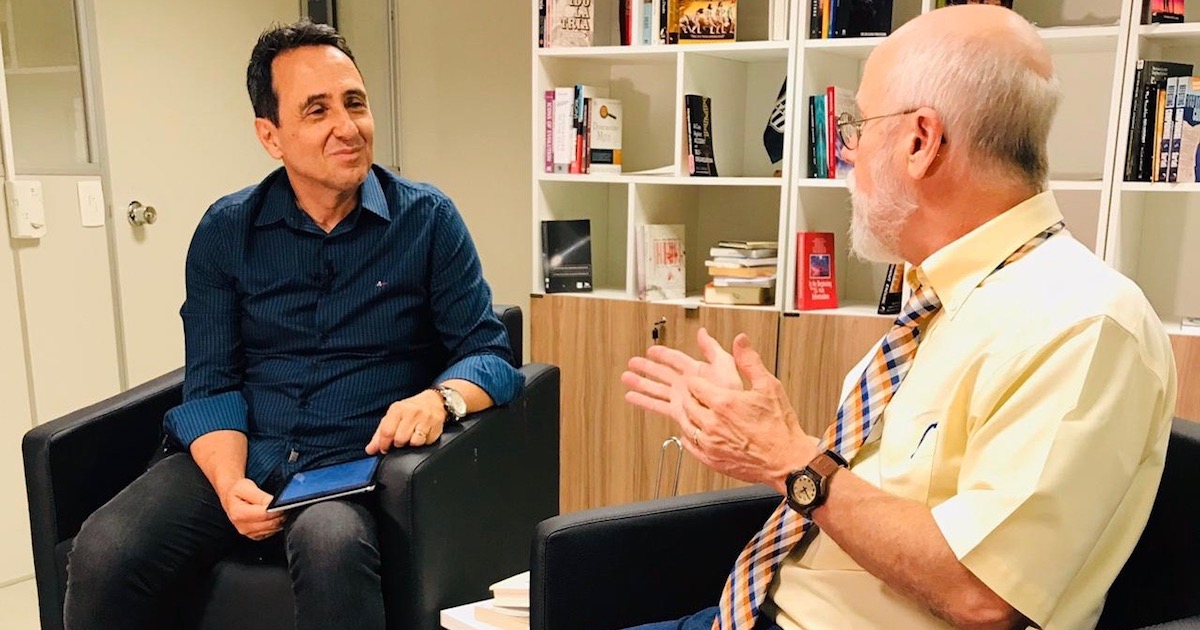
No doubt many of the more than a thousand PhD signers of the “Scientific Dissent from Darwinism” list would tell similar stories. Probably Dr. Neto, with graduate degrees from the Technical University of Berlin and the University of Washington, could tell a tale of how his own mind was changed.
It’s noteworthy how widely the scientific evidence we discuss here is recognized, not only by theists of various stripes — Christian, Jewish, Muslim — but by those who aren’t theists at all (like David Berlinski and Michael Denton, or like Thomas Nagel). This is a feature of the ID movement that can only be attributed to the strength of its evidence.
Photos: Celebrating the launch of Discovery-Mackenzie Research Center in São Paulo, Brazil, Dr. Neto welcomed scientists Michael Behe, Douglas Axe, Brian Miller, Jonathan Wells, Marcos Eberlin, Discovery Institute president Steve Buri, and other ID proponents.
